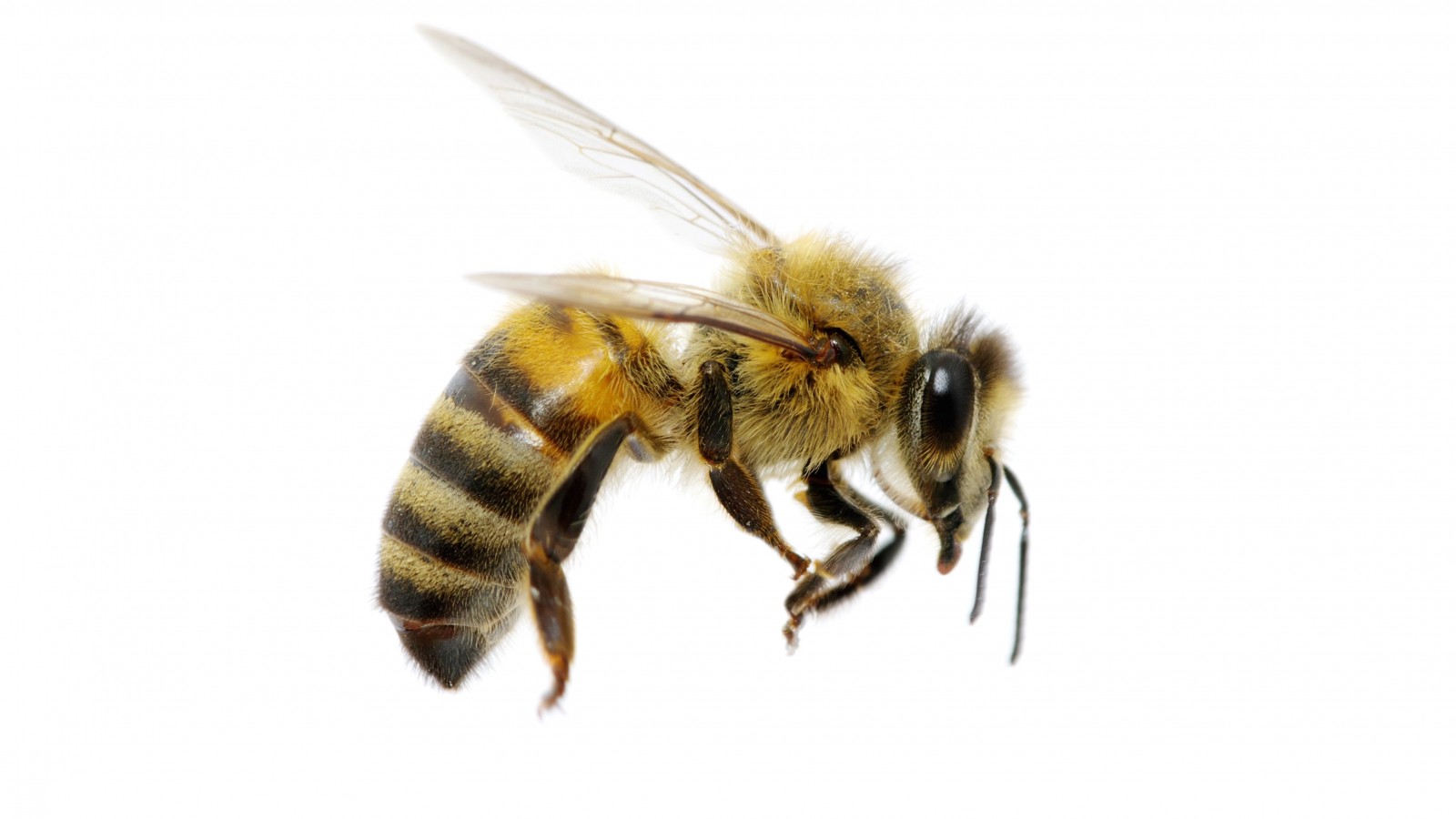Q. What’s a concerned consumer to do to help bees? Should I avoid using products that use beeswax, royal jelly, and honey, so there’s less pressure on bees to produce large quantities of bee byproducts for human commercial purposes? Or is it good to purchase bee-produced products to support companies’ self-interest in supporting research that ultimately addresses colony collapse? Every time I look at a Burt’s Bees package, I don’t know what to do. Help!
Deb C.
San Anselmo, Calif.
A. Dearest Deb,
Did you know that bees can remember faces? Or that they can clock speeds of 15 mph? Or that a single worker bee produces 1/12 of a teaspoon of honey in her lifetime? Fascinating creatures, these winged stingers.
But it’s what they do for our foodstuffs that make them particularly interesting: Bees are critical pollinators directly or indirectly responsible for a third of the food we eat, including such goodies as blueberries, apples, and avocados. That role is so crucial, in fact, that plenty of beekeepers make most of their money renting out hives to farmers in a kind of roving pollination station. (Did you know that a full 60 percent of the country’s commercial bees head to California every year for almond pollination season?) That alone is plenty of incentive for everyone to be concerned about colony collapse disorder.
Of course, the byproducts of all that pollination – honey, bee pollen, beeswax, and royal jelly – feed an industry of their own. And good news, Deb: Not only is it OK for you to purchase such treats, but doing so selectively is a wonderful boon for beekeepers, especially the smaller ones struggling to stay abuzz in the business.
“Under normal conditions, a healthy colony of honey bees can have surplus ‘hive products’ removed without overtaxing the colony,” Eric C. Mussen, a bee expert at the University of California-Davis, told me via email. “Beekeepers do not have to ‘put pressure’ on the bees to perform. They perform at a high level anyway, so long as conditions are good. Beekeepers can only modify what is going on; they cannot increase or decrease output, like you can with a machine.”
Smart beekeepers leave the bees enough honey to nibble on over the winter, added Ramesh Sagili, principle investigator at Oregon State University’s Honey Bee Lab. “[Beekeepers] aren’t technically taking off the comb, they’re taking the excess,” he said. So that excess is fine for you to enjoy spread over your toast – especially if you buy from local producers at farmers markets or well-stocked stores, as they often struggle to compete with cheaper honey imports from places like China. Even better, supporting your neighborhood bees means supporting robust pollination for your local food system. Now that’s what I call a sweet deal. (I should point out that many vegans don’t eat honey for animal rights reasons, which you’ll have to weigh yourself, Deb.)
As for the rest of the sticky stuff: Both Mussen and Sagili pointed out that beeswax would be wasted if we didn’t gather it for candles, moisturizers, and lip balms. The wax serves to cap the little hexagons of honey stored in honeycombs; left undisturbed, bees tunnel through it in winter and discard the wax as hive trash. Beekeepers have to slice off the wax to get to the liquid gold during honey harvests anyway, so why not use it? (Here’s a look at how Burt’s Bees does it, using wax sourced from East Africa.) The stuff is a natural, nontoxic alternative to other chemical-y cosmetic ingredients, and I’ve already waxed poetic about the benefits of bee-made candles.
Harvesting royal jelly, the gooey secretion fed to larvae destined to become queen bees, also gets Mussen’s stamp of approval. But though proponents swear the jelly has loads of health benefits, from preventing wrinkles to stimulating hair growth, to supercharging fertility, there’s scant scientific evidence to back them up. (It’s a bit like following the Duggars’ diet in the hopes it’ll get you pregnant, if you ask me.)
As a concerned consumer, there’s lots more you can do to help the bees, Deb. I hope you’ll consider trying one or more of these bee-friendly steps, in order from least to most commitment:
- Leave weeds like dandelions and clover in your yard as a tasty snack for local bees.
- Keep pesticides out of your garden and yard, as these chemicals can harm the hives. But you were doing that already, right?
- Plant a bee garden! Growing a variety of blooms over the season is like giving your friendly neighborhood pollinators a delectable buffet. Check with a local garden center for advice on native flowers to include, but lavender, rosemary, coreopsis, and Russian sage are some good bets.
- Host a beehive. In some cities, urban beekeeping companies can set you up with a buzzbox of your own to help support a vibrant local bee population (personalized pollination services to your garden and jars of local honey sweeten the deal).
If you’re truly inspired, you can even join the ranks of the backyard beekeepers. It’s no easy job, and it won’t make you rich — but you’ll become a vital part of the food system, fight colony collapse disorder, and always know your honey came from happy bees. Just be responsible with how you use the little guys, OK?
Apiculturally,
Umbra




